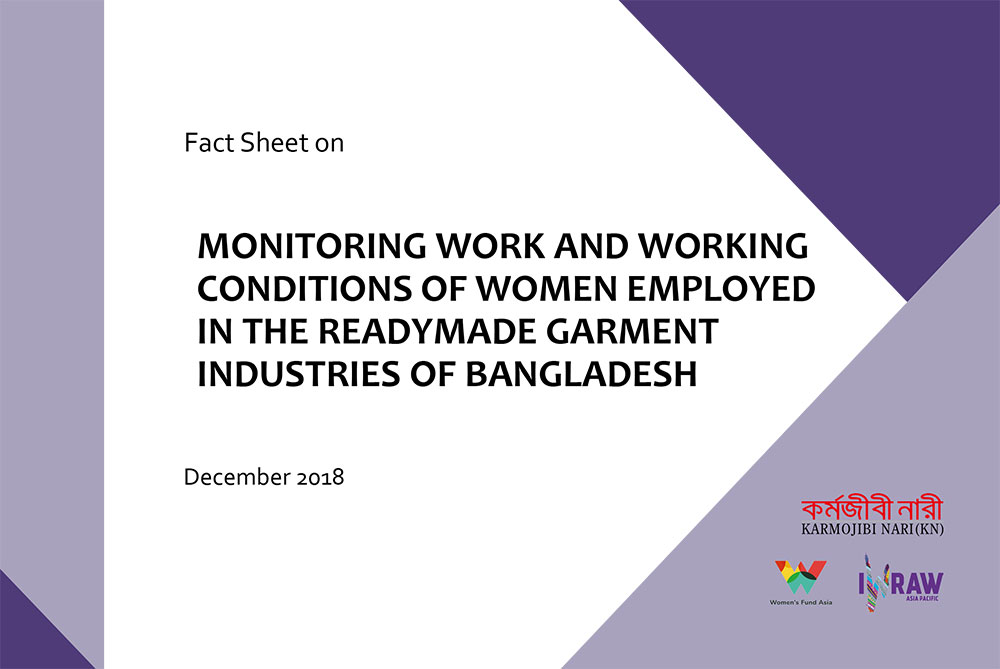MONITORING WORK AND WORKING CONDITIONS OF WOMEN EMPLOYED IN THE READYMADE GARMENT INDUSTRIES OF BANGLADESH
Bangladesh’s readymade garment (RMG) industry plays a significant role in the country’s
economy by earning the lion’s share of export income (81.23%) and creating jobs for millions
of people. RMG directly employs 4.2 million people (European Commission 2016) – of whom
the majority are women.1 Women RMG workers are plagued with various problems, such
as insufficient wages, irregularity in timeliness of wage payments, and unsafe working
conditions. They have additional concerns in the areas of workplace discrimination and
career prospects; harassment; working hours, including breaks; occupational health and
safety; welfare provision; social protection; and freedom of association, collective bargaining
and social dialogue. Although gender-based wage discrimination is seen less frequently
nowadays, discrimination persists in other forms – women are forced to work overtime more
than men, and the cut from the overtime allowance is greater for women workers than for
men. Women workers face severe discrimination with regard to their scope for promotion,
and their career prospects are limited; a study found that only 5-10 percent of women
workers become supervisors (The Daily Star, 8 March2015). Women workers’ workplaces are
not free from sexual harassment, which ranges from simple insults and demeaning remarks
to unwelcome touching and grabbing.

